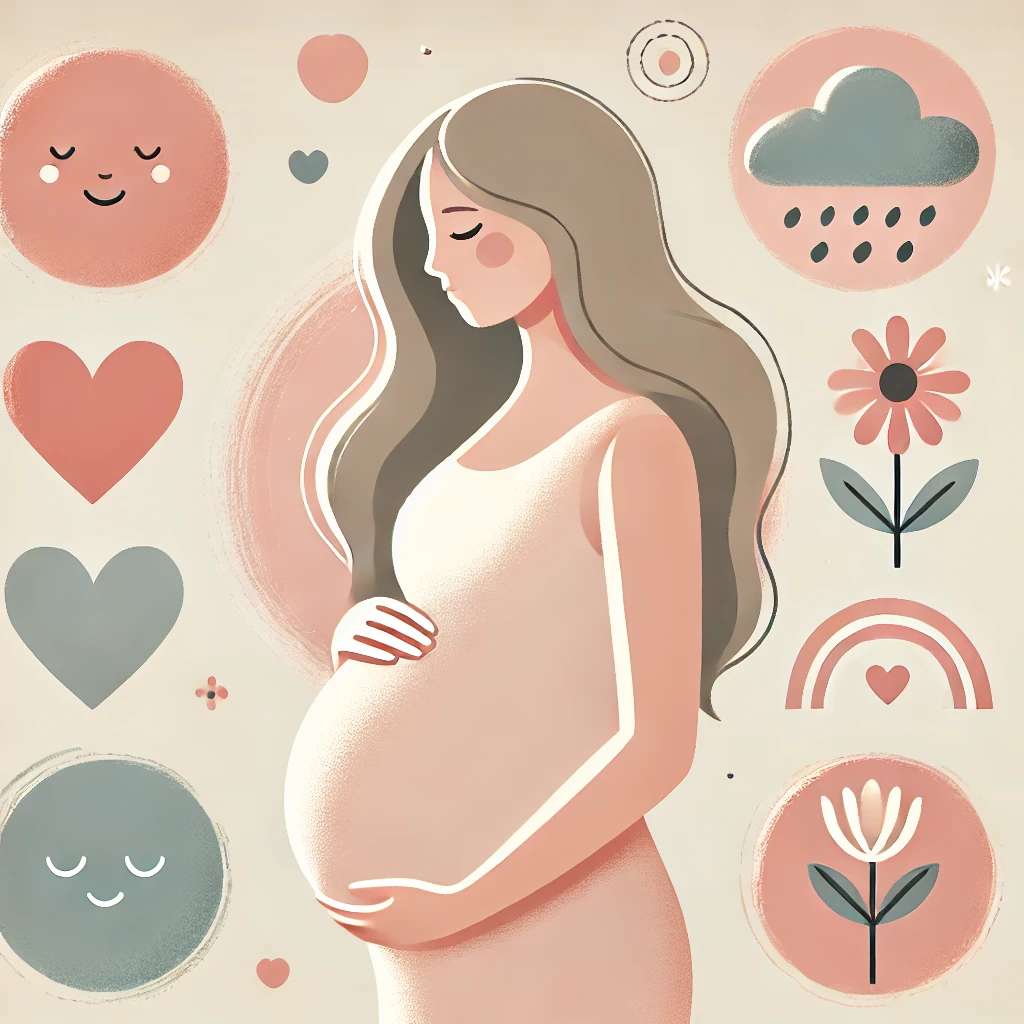How Preimplantation Genetic Testing Improves IVF Outcomes
Summary Table Aspect Details Benefits What is Preimplantation Genetic Testing (PGT)? Screening embryos for genetic abnormalities before implantation Increases implantation success Types of PGT PGT-A (aneuploidy), PGT-M (monogenic disorders), PGT-SR (structural rearrangements) Tailored testing for specific needs Benefits of PGT Higher IVF success rates, reduced miscarriage risk, improved selection of healthy embryos Increases chances of a healthy baby Ideal Candidates for PGT Women of advanced maternal age, recurrent miscarriages, family history of genetic disorders Personalized recommendations Considerations for PGT Cost, ethical concerns, and the need for expert genetic counseling Weighing benefits and challenges Preimplantation Genetic Testing (PGT) has revolutionized IVF …
Emotional Changes During Pregnancy: Why They Happen and How to Manage Them
Pregnancy is an exciting yet transformative journey that brings significant physical and emotional changes. While the anticipation of welcoming a baby is joyful, it’s natural to experience emotional ups and downs due to hormonal shifts and life adjustments. This article explains why emotional changes happen during pregnancy and offers practical tips to help you manage them. Why Emotional Changes Happen During Pregnancy Emotional fluctuations are a normal part of pregnancy, caused by several factors: Hormonal Shifts Increased levels of estrogen and progesterone influence brain chemicals like serotonin, affecting mood and emotions. Hormonal surges can lead to heightened sensitivity and mood …
How to Plan Your Stay in Turkey During Fertility Treatment
Aspect Details Tips for Travelers Choosing a Clinic Select IVFTurkey for comprehensive care Check credentials and success rates Travel Arrangements Book flights, secure visas, prepare documents Use direct flights, ensure travel readiness Accommodation Options Clinics like IVFTurkey offer nearby lodging Choose clinic-partnered options for convenience Local Transportation IVFTurkey provides transportation services Plan clinic commutes with provided services Cultural Considerations Language, food, and etiquette Learn basic Turkish phrases and explore the culture Post-Treatment Care Recovery and follow-up visits Rest and follow clinic instructions Turkey has become a global hub for fertility treatments, known for its advanced medical care and affordable pricing. …
Top 5 Fertility Tests and What They Reveal About Your Reproductive Health
Test Name What It Measures Purpose When It’s Recommended Hormone Tests (FSH, AMH) Ovarian reserve, egg quality Assess egg supply and predict IVF success Early stages of infertility workup Semen Analysis Sperm count, motility, and morphology Evaluate male fertility If conception has not occurred Hysterosalpingography Fallopian tube patency, uterine abnormalities Detect blockages or issues in the uterus History of pelvic infections or failed pregnancies Ultrasound (Transvaginal) Ovarian health, follicle count, uterine lining Monitor ovulation and identify abnormalities Routine fertility evaluation Genetic Testing Inherited conditions and chromosomal issues Rule out genetic disorders affecting fertility Recurrent pregnancy loss or family history of …
Fallopian Tube Surgery: A Comprehensive Guide to Restoring Fertility
Fallopian tube surgery is a critical treatment for women struggling with infertility caused by blockages or scarring in their fallopian tubes. By addressing these issues, this procedure can significantly improve the chances of natural conception. Here’s an in-depth look at what the surgery entails, who it benefits, and answers to common questions about the process. Understanding the Role of Fallopian Tubes in Fertility The fallopian tubes are essential for natural conception. They: Serve as the passageway for eggs to travel from the ovaries to the uterus. Provide the environment for fertilization when the sperm meets the egg. Damage or blockages …






